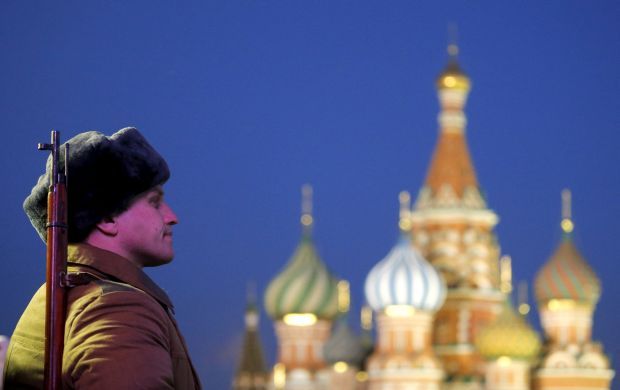
“The West’s political and military leaders are busy responding to threats that are, in fact, largely ephemeral,” reads the article.
“Brussels and Washington, for their parts, are insufficiently attentive and inadequately reacting to really existing new challenges in Europe’s east,” Umland writes.
Calling such distraction the very purpose of the Kremlin’s confrontational stance toward the West, the author says that the Western powers’ biggest failure is experiencing “a collective sense os déjà vu” instead of soberly assessing the real nature of today Russia’s challenge and exploring the entire gamut of the West’s new options to respond.
“NATO and its member states are overreacting rhetorically, militarily and politically to Russia’s new aggressiveness,” reads the article. “Without realizing, they are barking up the wrong tree, and playing Moscow’s game.”
Read alsoEx-NATO chief: Frozen conflict in Donbas to have devastating effectAs New York University political science professor Mark Galeotti has perceptively observed, large parts of the Western elite are doing nothing less than “panicking about Russia’s ‘hybrid’ warfare.”
Umland says it is exactly this alarmism — and less a real conflict — that the Kremlin’s posturing is trying to achieve.
The reason for that is Moscow being simply unable to fight a real new cold, let alone a hot, war with the West because the Russian Federation today is “much weaker than the USSR” and moreover, its ruling elite and petrol-based economy are “deeply integrated with the West.”
Read alsoStoltenberg accuses Kremlin of breaching NATO-Russia dealBut despite its inherent weaknesses and dependence, during the last two years, the Kremlin has succeeded in impressing scores of Western diplomats, analysts, businesspeople and politicians with the idea that “Russia is back.”
Admitting that Russia is today again well-armed and has a well-trained army capable of operating effectively abroad, th author says “Western governments and publics need to see better through the self-serving rationale of the Kremlin’s actions.” “They need to understand the gambler’s attitude of Russia’s shrewd “political technologists” and the cold calculations of Russia’s superrich power-holders,” says Umland.
Until that happens, Moscow will continue to try to control the reflexes of the West by military provocations and other means, “so as to prevent sober analysis, intergovernmental unity, strategic coherence and sustained counteraction by the West.”
Read also"ANACONDA-2016": NATO exercises war against Putin – BILDYet, given its multifarious economic ties with the West, the Russian elite will also make sure to let the confrontation not get out of control, so as not to risk a showdown.
The author calls on the Western powers to “rise above these petty games, avoid military competition, employ instead our multiple economic instruments, and, as Galeotti put it, ‘stop playing nice’ with the Kremlin.”
The article concludes that “as soon as Russia’s elite gets this message,” we will see quick improvement in Donbas, Syria and elsewhere.

